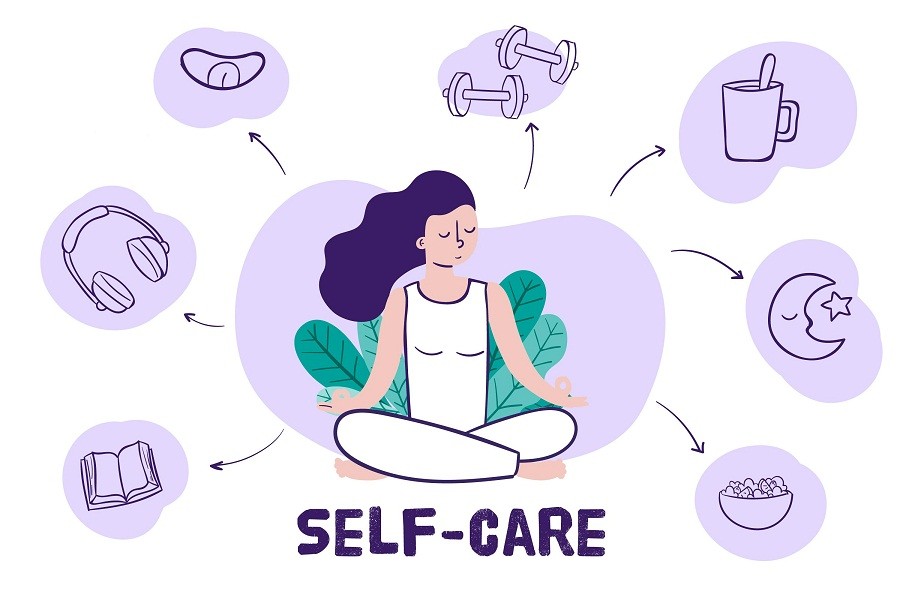
Published :
Updated :

According to ASD Market Week, a massive retail marketing trade show publication, the global self-care market has grown from USD 10 billion to over USD 450 billion in 2020.
The trending #SelfCare hashtag has racked up 2 billion views on TikTok alone. And Instagram features more than 58 million posts with a similar hashtag.
All of these are a strong testament to the booming popularity of the topic, although it is not given that much importance in the South Asian countries, including ours. However, misconceptions surrounding the topic play a role in such negligence.
When you ask nine different people how they practice self-care, you’d probably get nine different answers. But if you notice the recurring themes of social media, you’ll be inclined to think that self-care is all about extravagant facial masks, bubble baths, manicures, pedicures, spas, and massages — mainly accessible to the well-off younger generation.
But that’s a superficial and misconstrued idea of the term. The idea of self-care is way beyond that.
Self-care isn’t occasional pampering
Social media has portrayed self-care as a non-essential fluff that’s full of feel-good indulgences. Contrary to that perception, self-care is, in fact, the deliberate act of tending to all dimensions of our being - physical, mental, emotional, relational, and spiritual.
It’s absolutely crucial for our comprehensive well-being. Therefore, it must be integrated into our daily lives and practised every day.
While there’s no right or wrong way to practise self-care, it may not always be something fun. Occasionally, self-care can take the form of pampering or treating yourself.
However, most of the time, self-care is consciously going back to the basics — eating healthy, prioritising sleep, staying active, taking rest, practising mindfulness, managing inner critic, and maintaining a work-life balance.
Companies have transformed the term ‘self-care’ into slogans to sell us ridiculously expensive junk that we don’t need. They have been trying to convince us that in order to do self-care right, paid activities and bespoke self-care remedies are necessary.
The act of gazing at the stars without a care in the world can be a supreme, unforgettable experience that nourishes you spiritually and emotionally — which costs nothing.
The act of having an intimate conversation with your loved ones can do that as well. The mindset is all that matters.
Self-care isn’t about putting your own interests ahead of others
Another misconception about self-care is that it involves putting our own interests ahead of everyone else’s. But the radical history of self-care delineates that caring for the self and caring about society are actually interconnected.
Originally caught on as a medical concept in the 1950s, the term ‘self-care’ was popularised by activists during the height of the US civil rights and women’s rights movements of the 1960s and ’70s.
Across the US, black communities and people of colour often lacked access to basic health and social services. To change this, activists had to build the systems to help care for themselves and their communities.
They established food banks and created health clinics to address systemic inequalities and flaws in society. If you compare this to the present multi-billion-dollar self-care industry, you may be able to spot a few differences.
It doesn’t mean that we need to be activists to be deserving of self-care. We all deserve to be working towards our physical, emotional, and mental needs.
But self-care isn’t just about doing things ‘for me’ — it’s also about doing something that’s ‘for all.’
Because without empathy, kindness, and a true desire to improve our lives, as well as the lives of those around us, self-care can turn into narcissistic pursuits of self-gratification.
moriumkulsum15@gmail.com


 For all latest news, follow The Financial Express Google News channel.
For all latest news, follow The Financial Express Google News channel.